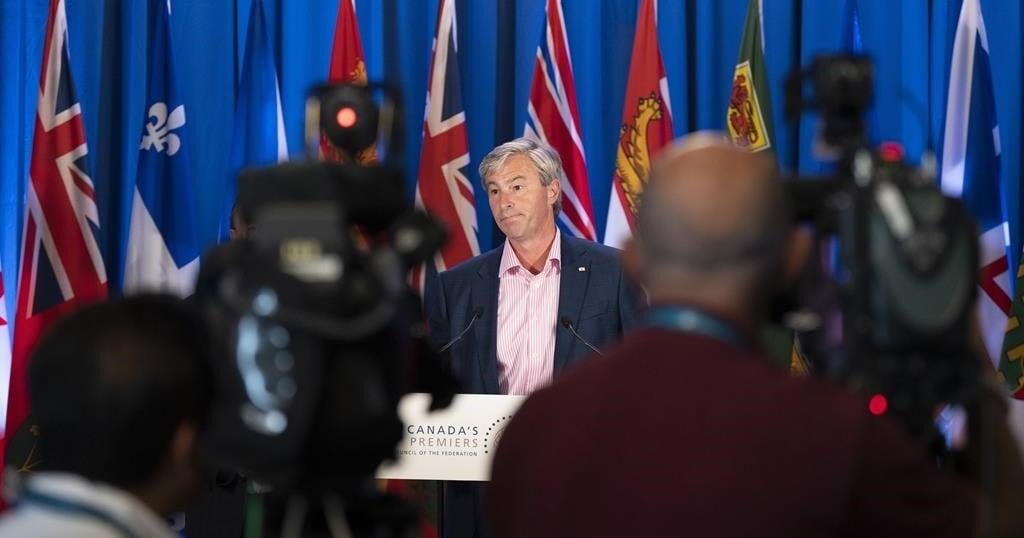TORONTO —
A recent survey by the Travel Health Insurance Association of Canada (THIA) suggests that U.S. travel is falling out of favour with Canadians, with European and Caribbean destinations being the most sought-after places to travel to post-pandemic.
While the U.S. is typically the most popular destination for Canadian travellers, the ongoing border closure has stalled tourism and snow birds eager to return to their winter homes.
But, according to the THIA, 79 per cent of Canadians, and 90 per cent of seniors, said they would not travel to the U.S. this winter even if their travel health insurance policy provided coverage for COVID-19.
Instead, the small survey of 1,000 respondents suggests that Canadians are most interested in visiting European and Caribbean destinations when the pandemic subsides.
But many Canadians are still confidently travelling abroad in the midst of the pandemic, despite warnings from the government to avoid all non-essential travel.
Barrie, Ont.-area resident Elizabeth Teffer Hodgson recently returned from a trip to an all-inclusive resort at Montego Bay, Jamaica, noting she felt safer and more comfortable while travelling than she does when going grocery shopping at home.
“I’m 67 years old, I’ve had a lot of travel experience and I thought I’m not going to shy away. I will make up my own mind,” she said of the restrictions, speaking to CTVNews.ca by phone on Friday.
“I would do it again in a heartbeat.”
By booking with Expedia, Hodgson was able to secure travel insurance that included coverage for COVID-19-related incidents. Several other Canadians wrote into CTVNews.ca noting they too had taken advantage of this type of travel coverage.
But the THIA notes that the landscape of travel and travel insurance is changing drastically in light of the pandemic.
Will McAleer, executive director of the Travel Health Insurance Association of Canada, warns that with the rollout of vaccination programs in Canada and around the world, some countries may soon start requesting proof of vaccination as a condition to entry.
“Where are Canadians travelling? Most of the time they’re travelling to countries in the Caribbean that have access to far less resources in order to be able to vaccinate their populations,” McAleer told CTVNews.ca by phone.
“As a result, the likelihood that they want to take extra precautions of those coming in is likely going to happen.”
This idea, sometimes referred to as an immunity passport, has been widely talked about since the onset of the COVID-19 pandemic. But McAleer says it’s still too soon to tell how this may affect the future of travel.
“Yes, it’s likely there’s going to be some sort of overarching requirement where you’re going to need to prove that you’ve got a vaccine in certain countries. The problem is there is no one standard from any of the governments who have started vaccination programs,” he explained.
“We know from our survey one in four, or 25 per cent, of Canadians would be prepared to falsely disclose a condition on a questionnaire, so what would individual’s openness be to suggesting they had a vaccine when they don’t.”
Some frequent fliers say they’d be more eager to get vaccinated if it meant they would be able to travel, such as Winnipeg resident Kathy Kwasnik, who travelled to Mexico twice amid the pandemic and has another trip to the Dominican Republic booked in January.
“We love to travel, mainly in the winter, and if that’s the case I would get the vaccine when its available to the general population,” she told CTVNews.ca by phone Friday.
In the meantime, McAleer says those who do choose to travel internationally should go through their travel insurance policies with a fine-tooth comb.
“Find out whether it has coverage for something related to COVID and make sure you’re asking the question about whether a travel advisory for a particular country will negate that coverage,” he said.
Source:- CTV News
Source link
